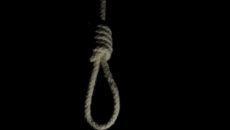MONROVIA, Montserrado – The U.S. State Department’s 2018 Human Rights Report has been released, uncovering several human rights violations in Liberia.
According to the report, human rights violations, including extrajudicial killings by police officers, arbitrary and prolonged detention by government officials, harsh and life-threatening prison conditions were observed during the period.
The report recorded that there were several reports that the government or its agents committed arbitrary or unlawful killings. “On April 29, a zone commander for the Liberia National Police, Roosevelt Demann, shot and killed an unarmed civilian, Beyan Lamie, when Lamie attempted to flee after a confrontation,†it said.
Demann, who was tried and found guilty for murder in September last year, was sentenced to 25 years in prison after an earlier police investigation determined that the slain Lamie posed no danger to the officer. His legal counsel had filed an appeal with the Supreme Court, which is reportedly expected to be determined during this March term of court, according to the State Department’s report.
Although the constitution and other laws in the country make torture, inhumane treatment, and the use of excessive force by law enforcement officers illegal, the U.S. State Department recorded that police and other security officers allegedly abused, harassed, and intimidated persons in police custody, as well as those seeking police protection.
The report referenced a 2017 report by the Liberian Independent National Commission on Human Rights which revealed that a corrections officer at the Harper Central Prison severely beat a pretrial detainee for refusing to get him water from a nearby creek. It said the officer was only suspended for one month by the Bureau of Corrections and Rehabilitation after an internal investigation was conducted.
Prison conditions, according to the report, were also harsh and at times life-threatening due to overcrowding, failing infrastructure, and inadequate medical care.
“Prisoners and independent prison monitors often noted that prisons had inadequate food,†it said.
The report accused the government of not always observing prohibitions against arbitrary arrest and detention and respect of citizens’ rights to challenge in court the legal basis or arbitrary nature of their detention and rights, in line with the laws, as police officers or magistrates frequently detained citizens for owing money to complainants.
According to the report, several city solicitors reported during site visits to the nine operating magistrate courts in Montserrado that magisterial court judges unilaterally issued writs of arrest without their approval or submission.
At the same time, the report said corruption persisted in the legal system, as some judges accepted bribes to award damages in civil cases.
“Judges sometimes solicited bribes to try cases, grant bail to detainees, or acquit defendants in criminal cases,†it said. The report said defense attorneys and prosecutors sometimes suggested defendants pay bribes to secure favorable decisions from judges, prosecutors, and jurors, or to have court staff place cases on the docket for trial.
Other violations recorded include undue restrictions on the press and criminal libel, despite progress to enact legislation decriminalizing press offenses. The report recorded that while individuals could generally criticize the government, criminal libel and slander laws and national security laws placed limits on freedom of speech in the country.
At the same time, it said independent media were often overshadowed by privately owned outlets with partisan leanings because of a lack of funding, although the independent media were active and expressed a wide variety of views. It said some media outlets and journalists allegedly charged fees to publish articles.
The report recalled that the Press Union of Liberia complained that laws prohibiting criminal libel against the president, sedition, and criminal malevolence, as well as high fines associated with civil suits, were sometimes used to curtail freedom of expression and intimidate the press. It said self-censorship was widespread, and some media outlets avoided addressing subjects like government corruption both due to fear of legal sanction and in order to retain government advertising revenue. At the same time, court decisions against journalists often involved exorbitant fines, and authorities jailed journalists who did not pay the fines.
This would, however, now be curtailed by the passage of the Kamara Abdullah Kamara Act of Press Freedom by the Legislature and its signing into law by President George Weah. The law decriminalizes speech offenses.
In its 2018 report, the U.S. State Department also recorded instances where law enforcement officers occasionally harassed newspaper and radio station owners because of their political opinions and reporting, especially those that criticized government officials. It said government officials also harassed and sometimes threatened media members for political or personal reasons.
Additionally, the report said low pay for civil servants, minimal job training, and little judicial accountability exacerbated official corruption and contributed to a culture of impunity.
“The government dismissed or in some instances suspended officials for alleged corruption and recommended others for prosecution,†it revealed.
The State Department accused the government of generally failing to charge higher-ranking officials with corruption and tended to recommend prosecution against low-level civil servants, without any exceptions.
The report specifically mentioned police corruption as an area that remains a problem for the government. It says the most prevalent form of police corruption was the solicitation of “on the spot†fines at roadblocks for traffic offenses.
Also, the report said the police dismissed an officer on April 10 for tampering with a criminal investigation into the death of a woman, where the officer allegedly investigated the case without authority and then detained and extorted money from the suspects.
The report further documented the lack of accountability in cases of violence against women due to government inaction in some instances, including rape, domestic violence, and female genital mutilation.
Trafficking in persons, criminalization of consensual same-sex sexual conduct, violence targeting lesbian, gay, bisexual, transgender, and intersex or LGBTI persons, and child labor, were also violations recorded in the 2018 Human Rights report.
Also recorded as serious problems were human rights violations that include impunity for individuals who committed atrocities during the civil wars, as well as for those responsible for current and continuing crimes. According to the report, the government made intermittent but limited attempts to investigate and prosecute officials accused of current abuses, whether in the security forces or elsewhere in the government, while corruption at all levels of government continued to undermine public trust in state institutions.
Featured photo by UN Photo/Christopher Herwig



